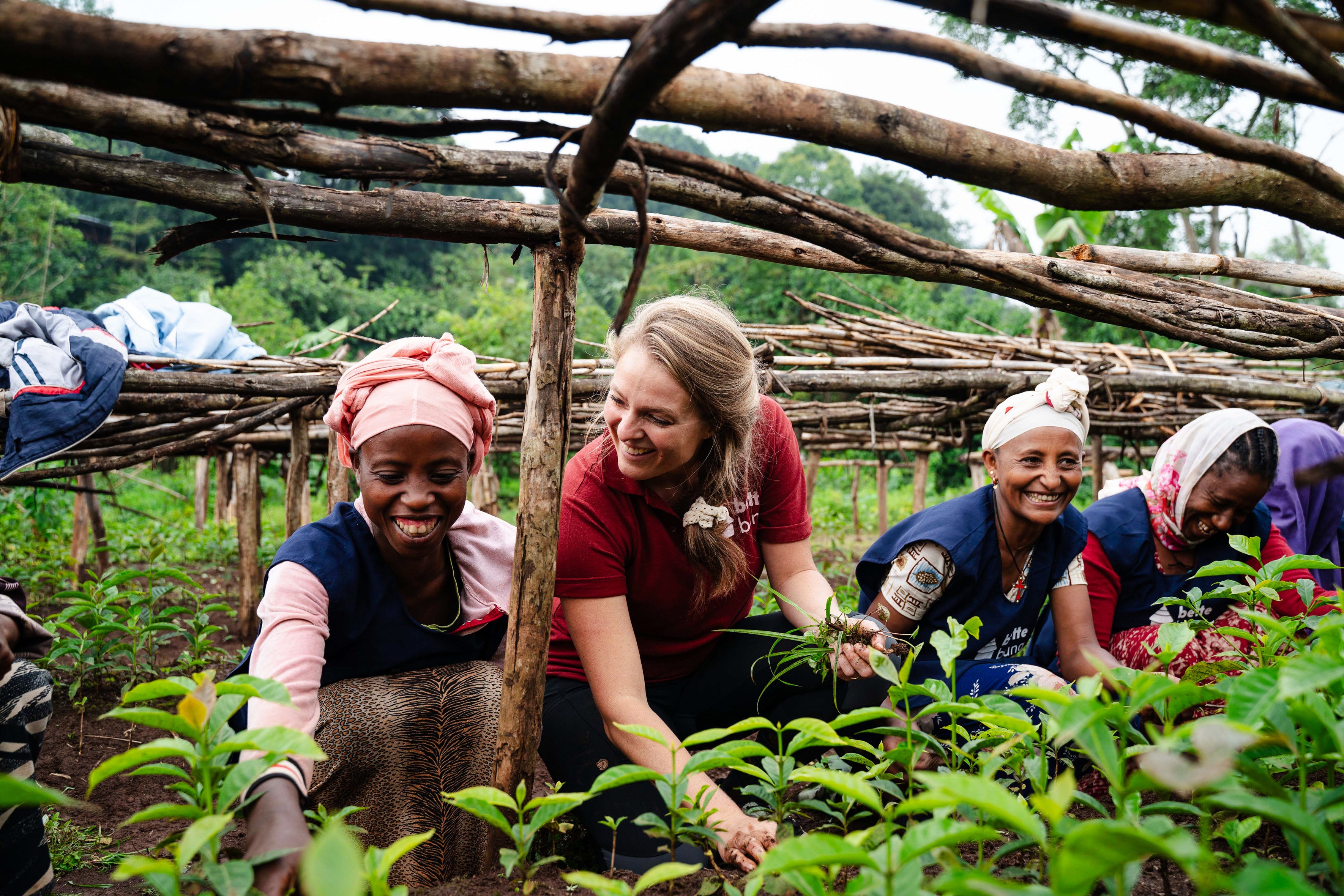Megadu farm in Guij
Guji is world-renowned for incredible naturally processed coffees and it is a privilege to work there.

Guji: beautiful coffee and strong partnerships
After inheriting and expanding the small farm in Taferi Kela Sidamo, we decided to grow in the best specialty region of Ethiopia too.
Guji has strong cultural traditions, and to work in this region we knew we’d need to approach it as a partnership with local community leaders-- people who are deeply rooted in these traditions and communities. Our farm is about 50 hectares of a 220-hectare collection of plots owned by two Guji community leaders, Gash Duba and Ato Saffay. They are esteemed informal leaders with an incredible knowledgeable of coffee cultivation who are also extremely well respected as decision makers. Having a farm on our own as people from outside the culture would be nearly impossible, so working with these community leaders has been a big success that we’re proud of.
A special place to grow coffee
Guji is very mountainous and densely forested. The soil is rich and the potential for coffee is spectacular, making it one of the most exceptional coffee growing regions in the world-- but it would be a mistake to think Guji’s reputation is purely down to its environmental niche. Coffee has grown wild in the many dense forests of Guji for centuries, and cultivation has evolved over the years. However, in the last 20 years, farmers in Guji have been cultivating coffee with an extreme focus on quality. It’s an important part of the culture. People take good care of their farms and soil and pride themselves in having healthy plants with good fruit. When it comes to harvesting, the picking is done at an elite level, with only the ripest and best cherries being picked.
A win-win collaboration
Megadu farm is part of a beautiful forest, and within its 220 hectares sits our plot, which is around a quarter of the total farmland owned by the informal leaders Gash Duba and Ato Saffay. As with our Taferi Kela farm, our work in this region started as a pilot. We took a small plot to see how well the collaboration would work-- we needed to know the project would be a win for us, the community leaders Gash Duba and Ato Saffay, and the communities they represent. We always try to grow incrementally so that we have the opportunity to find any potential problems before investing too heavily or taking on too much risk. Thankfully this collaboration has been a huge success, massively exceeding our expectations both in terms of coffee quality and impact.
Learning and teaching
Guji is known for producing exceptional coffees, particularly naturally processed ones. We’ve learned a lot from the farmers we work with there about good farm management, coffee cultivation, and how to promote the overall health of a farm from soil to plant. At the same time, we’ve had the opportunity to add value by teaching local people different processing techniques. We have a mill there, and we process lots from our plot and also the surrounding plots-- many as naturals but also some washed, as well as a few experimental processes such as anaerobic or oxidation. This is a great example of that win-win relationship we aspire to as we learn and improve our coffee growing and processing in a way that is collaborative and beneficial… not only for us, but for the wider coffee-growing community.
Future plans and aims
Our aim in Guji is, of course, to produce great coffee… but beyond that, it is about collaboration. By working with these important community leaders, we can both learn and share knowledge and success, securing better prices for our coffees and theirs. We hope we can institutionalise these positive changes in approach so that they will have a far more wide-reaching influence than we could ever achieve on our own.